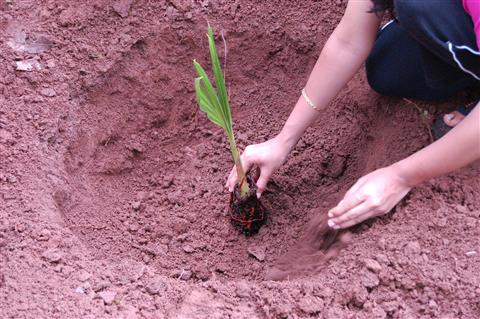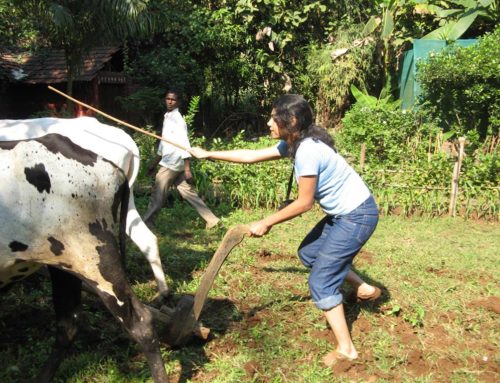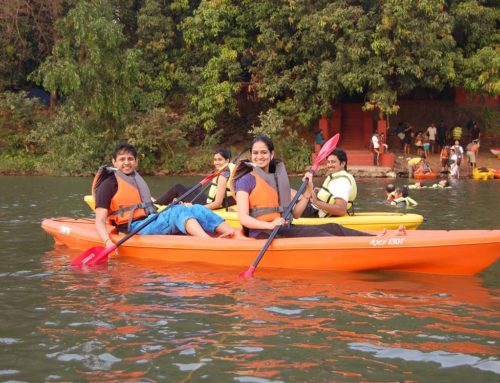Article written by CEO of Ecomantra, Mahrukh Bulsara
Experiential tourism is primarily outdoors and has an intrinsic relationship with the outdoor environment. From mountains to water bodies, forests to cold deserts – winter, summer or monsoon, a host of adventures are offered in a variety of terrain by seasoned and experienced adventure tour operators throughout the year. This makes operators naturally tuned into the needs of the destination where they work. In this article we focus on How to Add Eco to Experiential Travel
Year after year, tour operators who take fixed departure groups to the same destination like the fragile Himalayan region or the bountiful, green Western Ghats have reported their silent anguish on witnessing the destruction of once beautiful areas. The reasons vary from climate change, rapid increase in mass tourist activity to irresponsible mushrooming of hotels and operators leading to pollution, The result is the sad decay of the once admired, peaceful landscape. Often local villagers are alienated from the tourism activities leading to their resentment as they watch outsiders who are moneyed set up resorts or tour operations and offer them menial jobs or nothing at all.
Eco-tourism or the new buzz word ‘responsible tourism or sustainable tourism’ in this situation is not a mere term, but a path that genuine adventure operators have no choice but to follow.
For how often can one raft down rivers and be blind to the foliage around the banks losing its green sheen. How long can one silently watch hills quarried to make way for more tourism construction activity? Go on treks and ignore the mounds of garbage lying all around? Pass poverty stricken villagers and shut our eyes to their desperation as we enjoy our adventures?
Eco-tourism conducted in a genuine manner is not simply an instant magic wand for safeguarding the environment. It is a slow process, requiring huge patience on the part of the operators, broadmindedness and a willingness to make mistakes and not be pulled down easily. The path to eco-tourism comes naturally, when there is a deep empathy with nature and its people and a caring passion to improve rather than destroy that which gives us great joy and a source of income.
Trust us there are 4 visible cottages in the picture of Rivertrail camp below!
So, how can an experiential tourism organisation incorporate eco-guidelines?
A. How to Add Eco to Experiential Travel – If you are an Experiential Lodge owner, you can begin by adopting some initiatives.
1) Be more sensitive to the needs of the terrain you are operating in. Begin by researching traditional architecture systems which use locally available materials and resources. Traditional way of housing and water management is usually best suitable for the climate and energy conservation. Further it directly helps villagers with a respectable source of income.
And the way we do it is – At Ecomantra Eco Lodges, over 40% of construction material was commissioned locally and the balance 55% of construction material was sourced locally from within 20 km of the lodge. Even the flooring tiles was locally made by a local enterprise. This 5% externally imported material includes the upper deck babool wood and toilet porcelain that was sourced from neighbouring Gujarat since the local social forestry couldn’t provide us with babool.
2) Offer maximum employment opportunities to villagers by recognizing their unique skill sets whether it is traditional methods of farming or craftsmanship, knowledge of wildlife and nature, folk festivities or culture. Their way of life can be a made a way of life at the resort as well.
And the way we do it is – At Ecomantra Eco Lodges, we had 100% local employment for the first 5 years. As of now it stands at over 90% local employment since over 45 lodges are now operational in our lodge regios inspired by our success, which resulted in high demand and a subsequent shortage of skilled employees.
3) Manage your waste in an eco-friendly manner by composting wet waste and recycling the dry ones and make it a point to show the same to visitors.
For a detailed insight in going green at your lodges, read my article How to transform your lodge into an Eco Lodge on Linkedin Page .
B. How to Add Eco to Experiential Travel – And if you are an Experiential Tour Operator, you can begin by adopting some initiatives.
1) Set eco-friendly guidelines, beginning from your chosen mode of transport to managing waste throughout the tour and reducing the use of non-bio degradable disposables. From cleaning up trekking trails to incorporating silent sharing nature activities, practice ways to increase a sense of wonder for nature on your trips.
2) Include people in your team who are passionate about the environment, possess knowledge about the natural history of the destination and can communication in an interesting manner to visiting tourists.
3) A genuine eco-tourism provider combines eco-friendliness, local exposure and conservation effortlessly and does not compromise the spirit of the venture.
While adopting responsible eco-tourism, one needs to remember that conservation measures come from a company’s own CSR initiative and cannot be a pure selling point
Genuine Eco-tourism ventures are awe – inspiring for both visitors and industry stake-holders. They promote goodwill for your adventure resort or operations in the long run.
The pluses are huge not just for the natural environment and natives but the admiration for your adventure company will be here to stay!
Note on Eco-tourism – Eco-tourism focuses on local cultures, wilderness adventures, volunteering, personal growth and learning new ways to live on our vulnerable planet. It is typically defined as travel to destinations where the flora, fauna, and cultural heritage are the primary attractions. Responsible Eco-tourism includes programs that minimize the adverse effects of traditional tourism on the natural environment, and enhance the cultural integrity of local people. Therefore, in addition to evaluating environmental and cultural factors, initiatives by hospitality providers to promote recycling, energy efficiency, water reuse, and the creation of economic opportunities for local communities are an integral part of Eco-tourism.







Leave A Comment